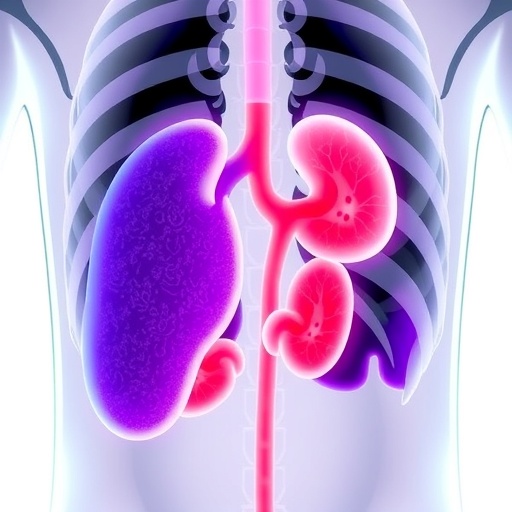Intrahepatic cholangiocarcinoma (iCCA) has garnered increasing attention within the medical community as a unique and challenging subtype of liver cancer. This malignancy, which originates in the bile ducts located within the liver, poses distinct clinical challenges, and the recent updates from current guidelines provide crucial insights for healthcare professionals and researchers alike. The latest research highlights significant advancements in comprehension, diagnosis, and management strategies, which are essential to improving patient outcomes.
The complexity of iCCA is underlined by its multifactorial etiology, which includes a variety of risk factors such as chronic liver diseases, hepatitis infections, and exposure to certain toxins. Recent studies have indicated an alarming increase in the incidence of this cancer, particularly in Western populations. Understanding the progression and biological behavior of iCCA is vital for developing targeted and effective treatment modalities.
Improved diagnostic tools have transformed the approach to iCCA. The integration of advanced imaging techniques such as MRI and PET scans allows for earlier detection than traditional methods could achieve. The use of sophisticated imaging markers facilitates the differentiation between localized and metastatic disease, which is pivotal for tailoring treatment plans. Such advancements not only enhance diagnostic accuracy but also contribute to more refined prognostic assessments.
A crucial shift in the management of iCCA pertains to the surgical intervention strategies, particularly liver resection and transplantation. The guidelines suggest that surgical resection remains the primary treatment option for operable patients. However, the challenge of achieving clear margins is significant. A comprehensive understanding of the tumor’s anatomical location and staging is essential for surgical planning, as these factors heavily influence the prognosis.
The role of adjuvant therapies following surgical intervention is another critical area of focus. Recent guidelines recommend considering adjuvant chemotherapy to mitigate the risk of recurrence in patients with high-risk features following resection. The incorporation of molecular profiling into treatment planning is showing promise, as certain genetic alterations can inform the selection of targeted therapies that may enhance treatment efficacy.
The evolving landscape of systemic therapies for advanced or metastatic iCCA showcases a shift towards personalized medicine. The identification of actionable mutations has opened new avenues for treatment. For example, patients with IDH1 mutations may respond favorably to targeted therapies, underscoring the importance of precise molecular diagnostics ahead of treatment decisions. Clinical trials are ongoing, aiming to solidify these strategies and refine treatment options.
In addition to therapeutic advancements, the guidelines underscore the importance of multidisciplinary care teams in the management of iCCA. Oncologists, surgeons, radiologists, and pathologists must collaborate to develop comprehensive, patient-centric treatment plans. This approach ensures the consideration of all aspects of patient management, right from diagnosis through to palliative care, enhancing overall care quality.
The psychological and emotional toll of being diagnosed with iCCA cannot be overlooked. Supportive care, including counseling and patient education programs, plays an indispensable role in the holistic management of iCCA. These programs aim to empower patients with knowledge about their disease, foster resilience, and provide resources for coping with the treatment journey. The emotional well-being of patients should be prioritized alongside traditional clinical interventions.
One emerging area of research focuses on the role of the tumor microenvironment in the pathogenesis of iCCA. Understanding the interplay between cancer cells and their surrounding stroma could lead to innovative therapeutic strategies, including novel immunotherapies that leverage the body’s immune response against tumor antigens. Investigations are underway to unravel the complexities of this interaction, which could yield breakthroughs in treatment options.
The importance of clinical trials cannot be overstated in the quest to improve outcomes for iCCA patients. Participation in clinical trials not only provides access to cutting-edge treatments but also contributes to the overarching goal of advancing scientific knowledge in this challenging area of oncology. The integration of real-world data alongside traditional trial results offers deeper insights into treatment efficacy and safety profiles.
With 2025 on the horizon, continuous updates and adaptations in treatment protocols are anticipated as further research delineates the path forward. Stakeholders in the clinical, academic, and pharmaceutical sectors must maintain a collaborative approach to expedite the translation of scientific discoveries into clinical practice, ensuring that advancements in therapy reach the patients who need them most.
In summary, the updates from the guidelines regarding intrahepatic cholangiocarcinoma reflect a profound evolution in understanding this unique malignancy. The integration of novel diagnostic and therapeutic strategies marks a hopeful turning point for patients afflicted with this aggressive cancer. As we strive for further advancements, collaboration and a commitment to patient-centered care will serve as the cornerstone for reshaping the landscape of iCCA management in the years to come.
By reinforcing the importance of interdisciplinary collaboration and placing patients at the heart of care, the journey toward more effective management of intrahepatic cholangiocarcinoma is set to continue transforming lives. Ultimately, the goal remains clear: to turn this once notoriously difficult cancer into one that, through research and innovation, can be managed with increasing efficacy.
Subject of Research: Intrahepatic cholangiocarcinoma (iCCA) and its management.
Article Title: Intrahepatic cholangiocarcinoma as a unique subtype: key updates from current guidelines.
Article References:
Schindler, A., Denecke, T., Seehofer, D. et al. Intrahepatic cholangiocarcinoma as a unique subtype: key updates from current guidelines.
J Cancer Res Clin Oncol 151, 305 (2025). https://doi.org/10.1007/s00432-025-06342-3
Image Credits: AI Generated
DOI: 10.1007/s00432-025-06342-3
Keywords: Intrahepatic cholangiocarcinoma, cancer guidelines, diagnosis, treatment, prognosis, molecular profiling, multidisciplinary care.
Tags: Advanced Imaging Techniques for Cancerbile duct cancer research advancementschallenges in cholangiocarcinoma diagnosiseffective treatment strategies for liver cancerhealthcare professionals iCCA insightsincreasing incidence of cholangiocarcinomaIntrahepatic cholangiocarcinoma updatesliver cancer management guidelinesmultifactorial etiology of liver cancerprognosis in intrahepatic cholangiocarcinomarisk factors for iCCAtargeted therapies for iCCA





